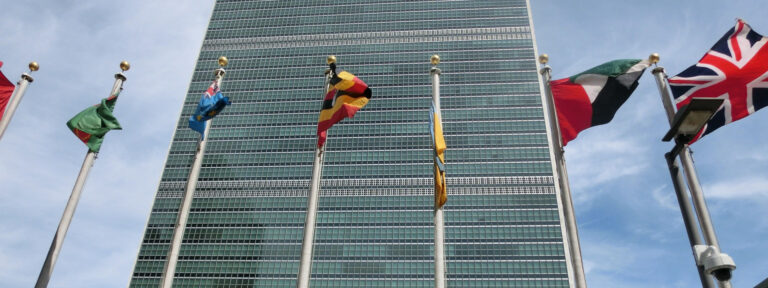
Report: Explosive population growth to 8 billion sees 19 billion tonne CO2 spike
03 November 2022, immediate use
• Global population hits 8 billion people for first time on 15 November this year
• Global carbon emissions have more than doubled since 1974
THE doubling of the world’s population to eight billion over the last half-century has been a critical driver of climate change emissions equivalent to the combined total of China, the US, and the EU according to a report out today (3rd November 2022).
CO2 emissions have more than doubled from 17 billion tonnes per year in 1974 to 36 billion tonnes per year in 2021.
In its report, ‘Crisis Point: The World at Eight Billion People’, charity Population Matters identifies population growth as one of the largest factors driving this increase.
This is affirmed by the Intergovernmental Panel on Climate Change (IPCC), this year, stating that population growth and GDP growth has been the two biggest drivers of emissions.
This stark reality comes as the world’s population reaches eight billion people during the COP27 environment conference, in Egypt, on November 15 according to UN projections.
In less than half a century humankind’s population explosion and consequent demand for resources has put a significant strain on our natural ecosystems and habitats, with 60 per cent of the world’s species populations declining in size in the last half-century.
More than half of all forest-dwelling wildlife has declined since the world population reached four billion in 1974.
At eight billion, the global population is estimated to require 1.8 times the Earth’s renewable natural resources.
This is set to increase to three times the Earth’s capacity if the human population reaches 9.7bn by 2050 as projected by the UN.
This is unsustainable and the situation is projected to get worse if comprehensive action, including to end population growth as soon as possible, is not taken.
Today’s report predicts the world could lose more than a quarter of its forests for food production alone by 2050 to feed the growing global population.
This amounts to some one billion hectares some 1.5 times the size of the Amazon rainforest. This would have a devastating effect on the world’s flora and fauna, the report warns.
Today’s report maintains that one of the most effective things a person in a high-income country can do to protect the planet is to choose a smaller family.
Separate research has identified actions to address population growth through the provision of family planning and access to high-quality education as the third most effective climate solution in limiting warming to 2˚C, and the seventh most effective in limiting warning to 1.5˚C by 2100.
In countries where population growth is currently high, flattening the growth curve can be achieved by faster progress in achieving gender equality, access to modern contraception, poverty alleviation, universal education and ending child mortality.
If one in every two families had one fewer child, the global population would be one billion lower in 2050 than current projections according to Population Matters.
The collective impact of individual and positive choices is enormous.
Population Matters Director Robin Maynard said:
“The diversity of life on Earth is essential to the health of our planet and to our own well-being as human beings. But with eight billion of us and growing, our one and only habitable planet is under pressure as never before.
“Population Matters is calling for a different, better world. One in which we can live within our planet’s limits, provide space for other species, and ensure a decent quality of life for future generations. This is a world that enables everyone to have the right and means to make positive choices.
“Choosing a smaller family is the single, most effective thing an individual person can do to take the heat off our planet and its collapsing ecosystems. This is especially the case for those of us in high-consuming societies like the UK, where our personal, environmental footprint is equivalent to that of a 10-tonne King Kong stomping about.”
For more information visit populationmatters.org
ENDS
Contact:
Alistair Currie, Head of Campaigns and Communications
T: +44 (0)208 123 9170
E: alistair.currie@populationmatters.org
Stakeholders quoted in this release may also be available for interview.
Notes for editors
1. Intergovernmental Panel on Climate Change, Climate change 2022: mitigation of climate change Chapter 2, Executive Summary, p 2-5 states: “Globally, Gross Domestic Product (GDP) per capita and population growth remained the strongest drivers of CO2 emissions from fossil fuel combustion in the last decade (high confidence). Trends since 1990 continued in the years
2010 to 2019 with GDP per capita and population growth increasing emissions by 2.3% and 1.2% yr-1, respectively.”
2. Project Drawdown calculates that increased uptake of voluntary family planning, and 12 years of high-quality education could reduce CO2 equivalent emissions by nearly 70 gigatonnes between 2020 and 2050 through their actions in reducing population growth.
3. Visualising 8 billion people: Did you know that if 8 billion people stood on each other’s shoulders would stretch to the Moon and back 17 times? Or that 8 billion people collectively weigh more than 2.77 million wind turbines? For more interesting statistics, please read our ‘Crisis Point: The world at 8 billion people’ factsheet.
4. King Kong impact: ‘A modern industrial human has a socio-metabolism of 8000 W (or 12000 W if a North American). This is equivalent to the physiological metabolism of a 10-tonne mammal (or a 15-tonne mammal in North America). About 1.4 to 2 times the mass of a large African elephant, the largest extant land mammal. A 10-15 tonne primate, such as King Kong, has existed only in literature. For an alternate perspective on human impacts on the natural environment, imagine the United Kingdom as landscape with 63 (65/66m today) million 10-tonne apes roaming the countryside, or the United States as a landscape with 310 million 15-tonne King Kongs.’ Yadvinder Malhi, ‘The metabolism of a human-dominated planet’, included in volume of essays, ‘Is the Planet Full?’ edited by Ian Goldin, Oxford Martin School, 2014
5. Population Matters is a UK-based charity working with partners, friends and stakeholders globally to achieve a better future for people and planet. We campaign, inform, undertake research and do all we can to encourage an open, fair-minded and constructive debate about population;
6. Population Matters promotes positive, practical, ethical and entirely voluntary solutions – encouraging smaller families, inspiring people to consume sustainably, with the aim of enabling everyone to enjoy a decent quality of life whilst respecting and sustaining the natural ecosystems upon which all life on earth depends; and
7. Population Matters empowers choice. In a world of finite resources our reproductive and consumption choices are critical for achieving that vision of humanity in harmony with nature, prospering on a healthy planet. We believe everyone should have the freedom and ability to choose a smaller family.
The Chandlery
50 Westminster Bridge road
London
SE1 7QY
Charity no: 1114109



